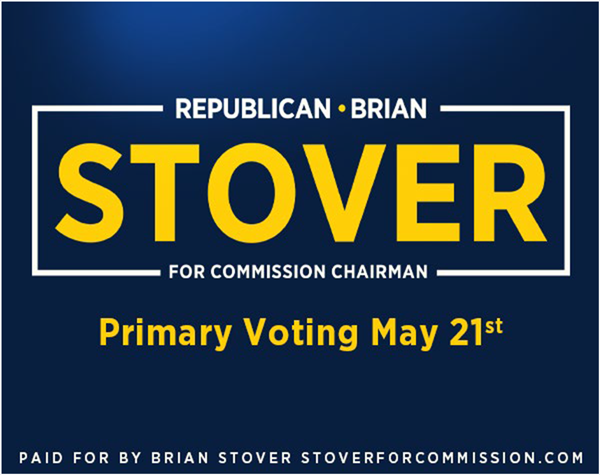Rep. Graves Introduces Bipartisan Resolution to Stop CFPB Rule
Washington, D.C. – Rep. Tom Graves (R-GA-14) and a group of House Republicans and Democrats introduced legislation to nullify a controversial rule that would effectively ban millions of consumers from accessing short-term, small-dollar credit. The rule was issued by the former director of the Consumer Financial Protection Bureau (CFPB) shortly before he left office.
Short-term, small dollar credit is essential to nearly 12 million American consumers who have difficulty qualifying for many other types of credit. Many people also use these short-term loans to bridge an emergency, such as an unexpected car repair or medical bills.
These loans are already regulated by all 50 states, the District of Columbia and Native American tribes. The CFPB’s rule would mark the first time the federal government has gotten involved in the regulation of these loans.
The legislation introduced today uses Congressional Review Act authority to repeal the rule and prevent the Bureau from issuing a similar rule in the future. The bill is sponsored by Rep. Dennis Ross (R-FL) and, in addition to Rep. Graves, co-sponsored by Reps. Alcee Hastings (D-FL), Henry Cueller (D-TX), Steve Stivers (R-OH) and Collin Peterson (D-MN).
Rep. Graves said, “While we all support safeguards to prevent predatory lending practices, the CFPB’s rule on small-dollar loans will actually hurt the very people it intends to help – a familiar pattern with the CFPB. Under this rule, many low-income consumers with a limited credit history will face little, if any, access to cash during an emergency because the rule will push lenders out of the marketplace leaving fewer and worse options for individuals in need. Right now, small-dollar loans are effectively regulated at the state level, and there is no reason to make a change simply because an unaccountable Washington agency thinks consumers will benefit from a top-down, one-size-fits-all regulation.”
House Financial Services Committee Chairman Jeb Hensarling (R-TX), a supporter of the bipartisan effort, said the CFPB’s rule is an example of how “unelected, unaccountable government bureaucracy hurts working people.”
“Once again we see powerful Washington elites using the guise of ‘consumer protection’ to actually harm consumers and make life harder for lower and moderate-income Americans who may need a short-term loan to keep their utilities from being cut off or to keep their car on the road so they can get to work,” he said. “Americans should be able to choose the checking account they want, the mortgage they want and the short-term loan they want and no unelected Washington bureaucrat should be able to take that away from them.”
Rep. Ross said, “More than 1.2 million Floridians per year rely on Florida’s carefully regulated small-dollar lending industry to make ends meet. The CFPB’s small-dollar lending rule isn’t reasonable regulation — it’s a de facto ban on what these Floridians need. I and my colleagues in Congress cannot stand by while an unaccountable federal agency deprives our constituents of a lifeline in times of need, all while usurping state authority. Today, we are taking bipartisan action to stop this harmful bureaucratic overreach dead in its tracks.”
Rep. Hastings said, “Five-and-a-half percent of all Americans have used short-term loans in the past. I myself used a short-term loan to start my law practice because that was the only loan available to me at the time. The prevalence and popularity of small-dollar loans can, like in any industry, attract unscrupulous actors. Like all of my colleagues in Congress, I welcome safeguards that will ensure consumers are protected and that bad actors in the industry are held accountable. Unfortunately, the rule promulgated by the Consumer Financial Protection Bureau (CFPB) does not reflect this sound policy. Rather, the CFPB’s rule would shutter much of the available small-dollar loan volume in the country, leaving many hard-working Americans with nowhere to turn during tough times. With this resolution introduced today, I hope that we can work towards a more balanced policy. I hold up the regulatory model that my state of Florida has implemented as an example of what works when the appropriate balance of access to credit and consumer protection is struck. Florida knows all too well that there can be dishonest actors in the small-dollar, short-term credit industry. That is why, 17 years ago, the Florida legislature acted unanimously to reform the states’ small-dollar credit industry to protect consumers and their access to credit. And the system has worked. According to the CFPB, only one percent of consumers have complained about their experience. Floridians are able to access an important source of credit, while also being protected from falling into debt traps or falling prey to unscrupulous actors.”
Rep. Cuellar said, “My district is one of the poorest in the country, and many families lack access to banks and credit unions. When emergencies like medical care or the breakdown of cars or farm equipment occur, they need immediate access to loans. While both lenders and borrowers have an obligation to make responsible decisions, applying a standard that slows access to credit and leaves families in crisis is unacceptable.”
Additional resources:
Minority small business owner testifies “the payday loan I got…was a lifeline.”
Testimony of Indiana Attorney General Greg Zoeller
Testimony of Sherry Treppa, Chairperson of the Habematolel Pomo of Upper Lake
Hearing on the CFPB’s Assault on Access to Credit and Trampling of State and Tribal Sovereignty





















